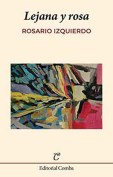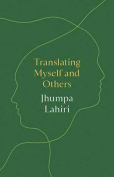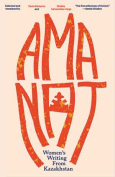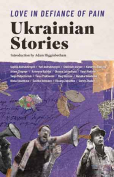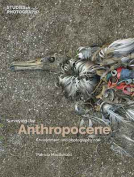Translating Myself and Others by Jhumpa Lahiri
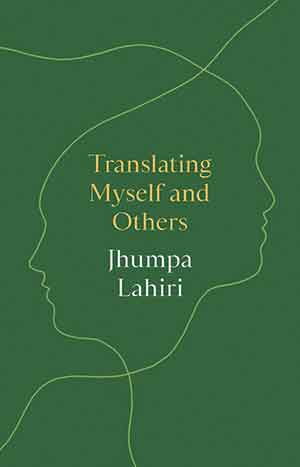 Princeton. Princeton University Press. 2022. 208 pages.
Princeton. Princeton University Press. 2022. 208 pages.
JHUMPA LAHIRI’S CAREER as a writer has defied conventional expectations. Having achieved critical acclaim as a South Asian American fiction writer in English, winning the Pulitzer Prize for her debut collection of stories, The Interpreter of Maladies (2000), and producing several novels afterward, she made the path-breaking decision to move to Italy, immerse herself in Italian, and write exclusively in this language that is not connected to her cultural heritage. Since 2015, she has published three nonfiction works and one novel in Italian. In addition, she has also emerged as a translator of three novels by the Italian novelist Domenico Starnone as well as a translator of her Italian novel into its English version, Whereabouts (see WLT, Summer 2021, 90). The current collection of ten essays is a lyrical meditation on translation and a manifesto establishing translation as an artistic pursuit as creative and authentic as writing in the original language.
The collection begins with the essay “Why Italian?” which Lahiri wrote in Rome in 2015 and which has been translated by Molly L. O’Brien. In this essay, Lahiri attempts to answer the question she has faced often from Italians: “Why do you know, speak, and write in our language?” This question makes her painfully aware that “Italian is not mine.” Nevertheless, she attempts to answer this question through a series of metaphors. Italian opens for Lahiri a door which allows her “a sweeping splendid view.” She also uses the metaphor of grafting from the Italian writer Elena Ferrante’s novel The Lost Daughter to elaborate this botanical metaphor as something crucial to ensuring the robustness of a plant species. She summarizes the debt she owes to the experience of learning Italian as an adult: “The Italian language did not simply change my life; it gave me a second life, an extra life.”
Continuing with poetic metaphors to elaborate her theorization of translation, Lahiri turns to Ovid’s Metamorphoses, specifically the myth of Narcissus and Echo, to elaborate her understanding of translation in the chapter titled “In Praise of Echo.” She opens her seminar on translation at Princeton with Ovid’s Metamorphoses, a work she is drawn to because it represents the Roman poet Ovid’s encounter with Greece as a young man and the reproduction of cultural narratives of the older Greek culture into Latin poetry. Lahiri reads the tragic love affair of Narcissus and Echo as an allegory of both writing and translation. Echo, the feminine figure, is cursed by Juno into being able to repeat only a portion of what she hears from others. When she falls in love with Narcissus, she is unable to call out to him and wastes away when he rejects her, reduced only to a voice. Narcissus falls in love with his own shadow. Lahiri reads Echo as the figure of the translator who is ostensibly punished to repeat the words of others. Lahiri reads translation paradoxically as an act of passion, not punishment, as the task allows the translator to evoke new meaning and exercise new authority over the text. In reflecting on her twin vocations of writing and translation, she is critical of the public perception that translation represents a lower form of creativity because of received notions of the authentic versus the derivative. Lahiri deconstructs this notion by arguing that no writing is truly original but a constant renegotiation of old myths and situations. She identifies with both Narcissus, the more overtly male and the writer figure, as well as Echo, the feminine translator. This is because writing involves looking inward like Narcissus did when he fell in love with his reflection as well as listening to the world and reproducing what it says, à la Echo. Lahiri concludes the essay by advocating for writers who also work as translators because she considers translation to be “central to the production of literature and not an accessory to it.”
The collection also offers us Lahiri’s insights as a literary critic responding to works of other translators. Lahiri’s extraordinary efforts in reading Italian are exemplified in her chapter on Antonio Gramsci, where she reads his letters and Prison Notebooks together to explore his role as a translator. Lahiri studies and analyzes various letters Gramsci wrote to his wife, sons, and sister-in-law to explore his lifelong endeavor to translate works from German and Russian. She draws a parallel between Gramsci’s life under imprisonment and her own life during the pandemic. She has not translated Gramsci but ponders the possibility of getting to know his work more intimately.
The final chapter, “Translating Transformation,” is the most poignant, as it is Lahiri’s personal memoir of her mother’s final illness and death. During this time, Lahiri is reading Ovid’s Metamorphoses in Latin and contemplating a translation with the help of a colleague. As her mother declines, the only prayer she can summon is a line from Ovid that translates to “My soul stirs to speak of forms changed to new bodies.” Lahiri’s last gift to her mother are two flowering plants, the daffodil and hydrangea. Her mother tells her that she will continue to “dwell” in these plants. These last words enable Lahiri to imagine her mother’s passing as a transformation into another form and thus mitigate the irrevocable sorrow. This personal essay is powerful in its reticent expression of grief even as it reinforces the role of poetry in anchoring the author during life’s colossal upheavals.
Lopamudra Basu
University of Wisconsin–Stout
When you buy a book using our Bookshop Affiliate links on this page, WLT receives a commission. Thank you for your support!








